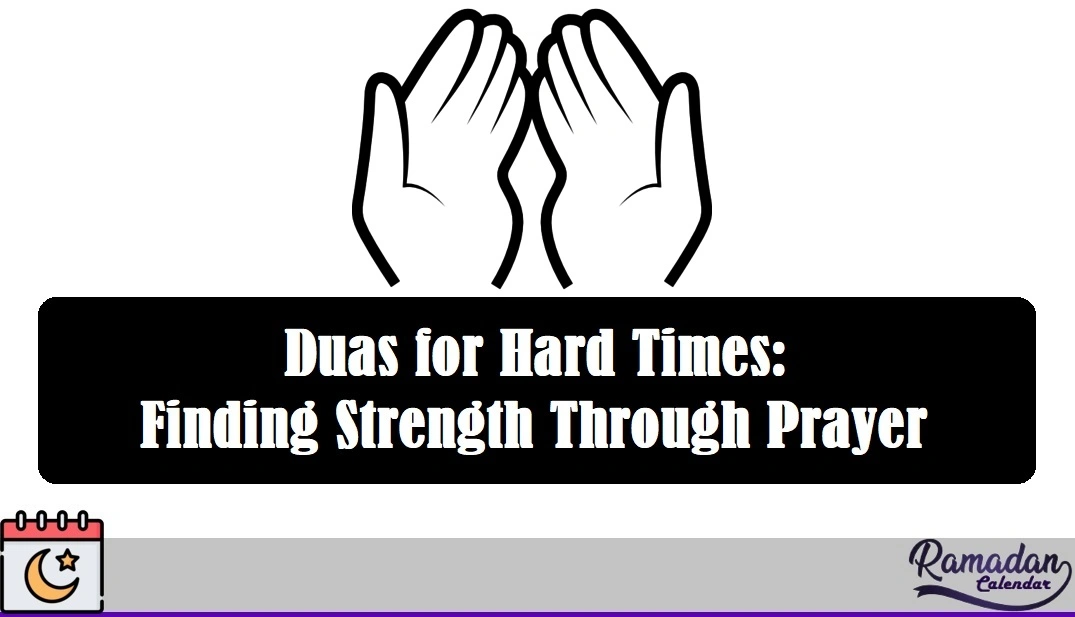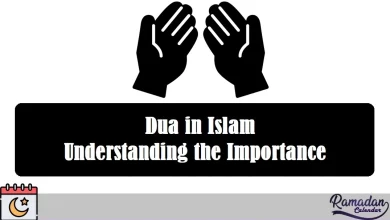Duas for Hard Times: Finding Strength Through Prayer
Duas for Hard Times: Finding Strength Through Prayer [Know]

Duas for Hard Times: Finding Strength Through Prayer: Life is filled with challenges, uncertainties, and moments of profound difficulty. During such times, turning to Allah through dua (supplication) is not only a source of comfort but also a powerful way to seek guidance, strength, and relief. Dua is a deeply personal act of worship that connects us directly to our Creator, reminding us that we are never alone, no matter how heavy our burdens may feel.
This article explores the importance of dua during hard times, provides examples of supplications, and offers guidance on how to find strength and resilience through prayer.
The Significance of Dua in Challenging Times
Hardships are an inevitable part of life. They test our patience, faith, and resolve. However, Allah reminds us in the Quran:
“Indeed, with hardship [will be] ease.” (Surah Ash-Sharh, 94:6)
This verse reassures believers that no matter how difficult a situation may seem, relief and ease will follow. Dua is one of the most effective ways to navigate hardships because it allows us to:
Seek Allah’s Help: When we feel powerless, dua reminds us that Allah is Al-Qadir (The All-Powerful) and Al-Wakeel (The Disposer of Affairs).
Strengthen Our Faith: Dua reinforces our reliance on Allah and deepens our trust in His wisdom and timing.
Gain Emotional Relief: Expressing our fears, worries, and hopes to Allah can be incredibly cathartic, offering a sense of peace and reassurance.
Duas for Strength During Hard Times
The Prophet Muhammad (peace be upon him) provided us with numerous supplications to recite during challenging moments. Here are some powerful duas to incorporate into your daily prayers:
Dua for Patience and Strength:
“Our Lord, pour upon us patience and let us die as Muslims [in submission to You].” (Surah Al-A’raf, 7:126)
This dua is a plea for sabr (patience) and steadfastness in the face of trials.
Dua for Relief from Anxiety and Sadness:
The Prophet Muhammad (peace be upon him) often recited the following:
“O Allah, I seek refuge in You from anxiety and grief, weakness and laziness, miserliness and cowardice, the burden of debts and being overpowered by men.”(Sahih Bukhari)
This supplication is a comprehensive request for protection from emotional and financial hardships.
Dua for Forgiveness and Guidance:
“My Lord, forgive me and my parents and whoever enters my house as a believer and the believing men and believing women. And do not increase the wrongdoers except in destruction.”(Surah Nuh, 71:28)
Asking for forgiveness and mercy not only cleanses the soul but also brings a sense of relief and closeness to Allah.
Dua for Ease in Affairs:
“O Allah, there is no ease except in that which You have made easy, and You make the difficult, if You will, easy.”(Sunan Ibn Majah)
This dua acknowledges Allah’s power to transform the most challenging situations into manageable ones.
How to Make Dua Effectively
To ensure your duas are heartfelt and impactful, consider the following tips:
- Start with Praise and Gratitude: Begin your dua by praising Allah and expressing gratitude for His countless blessings.
- Invoke Salawat: Send blessings upon the Prophet Muhammad (peace be upon him) before and after your supplication.
- Be Sincere and Specific: Speak to Allah with sincerity, mentioning your needs and struggles in detail.
- Show Persistence: Repeatedly make dua for the same matter, demonstrating your faith and patience.
- Pray at Optimal Times: There are specific times when duas are more likely to be accepted, such as during the last third of the night, between the adhan and iqamah, and on Fridays.
- Conclude with Hope: End your dua by thanking Allah and expressing hope in His mercy and response.
Lessons from the Prophets’ Duas
The lives of the prophets are filled with inspiring examples of turning to Allah in moments of distress. For instance:
Prophet Ayub (Job): Despite enduring severe illness and loss, Prophet Ayub prayed:
“Indeed, adversity has touched me, and You are the Most Merciful of the merciful.”(Surah Al-Anbiya, 21:83)
His unwavering patience and trust in Allah’s mercy serve as a timeless lesson for all believers.
- Prophet Yunus (Jonah): When trapped in the belly of the whale, Prophet Yunus called out:
“There is no deity except You; exalted are You. Indeed, I have been of the wrongdoers.” (Surah Al-Anbiya, 21:87)
This powerful dua, known as the Dua of Yunus, is a profound reminder of repentance and reliance on Allah.
Finding Comfort in Dua
Making dua during hard times is a testament to our belief in Allah’s infinite mercy and wisdom. It is a way to acknowledge that while we may not have control over our circumstances, Allah does. By placing our trust in Him and seeking His guidance, we can find the strength to endure and overcome any challenge.
Conclusion
Dua is a lifeline for believers navigating the complexities and hardships of life. It is a source of strength, hope, and solace that connects us to Allah in our most vulnerable moments. By turning to Allah with sincerity, persistence, and trust, we can find the resilience needed to face adversity and emerge stronger in faith. Remember, no matter how difficult the path may seem, Allah’s mercy and guidance are always within reach. So, make dua a consistent practice, and let it be your anchor in both calm and stormy seas.





